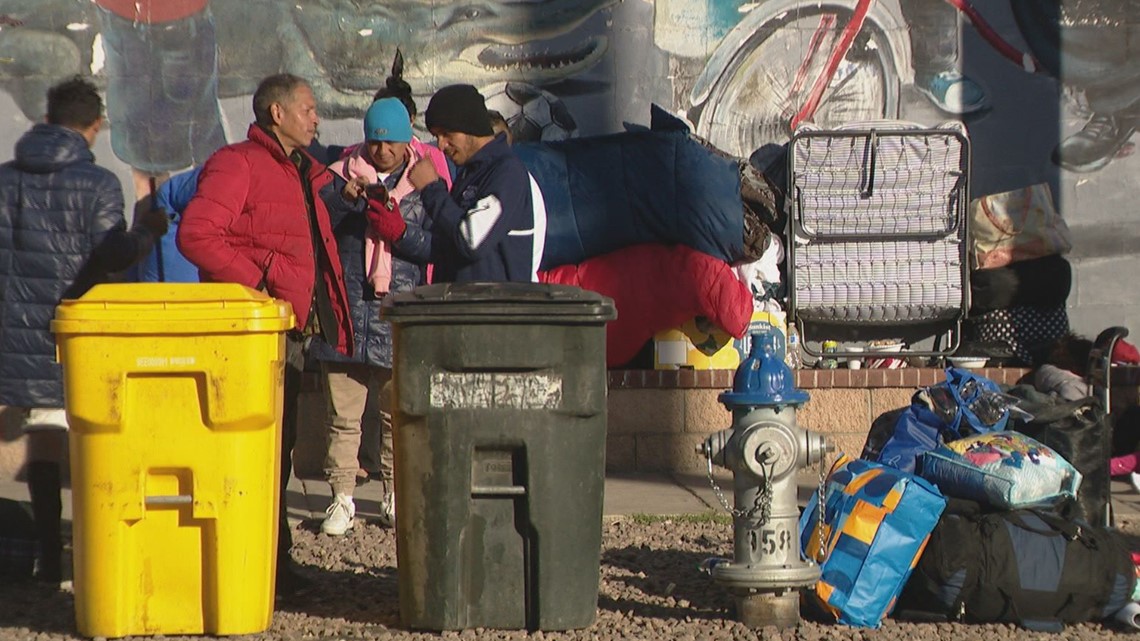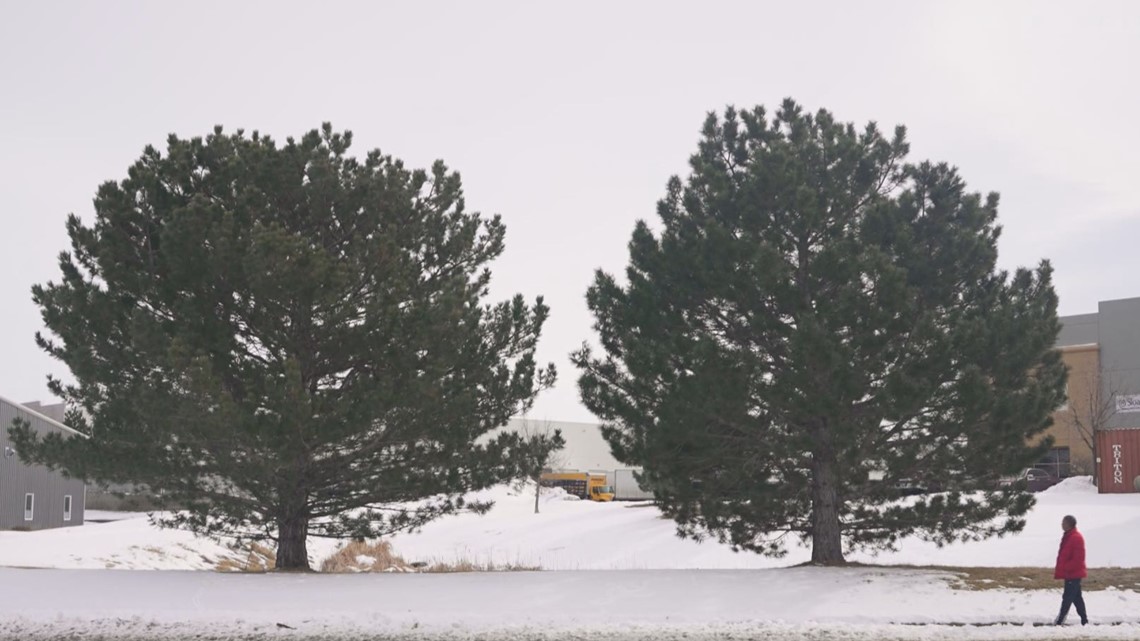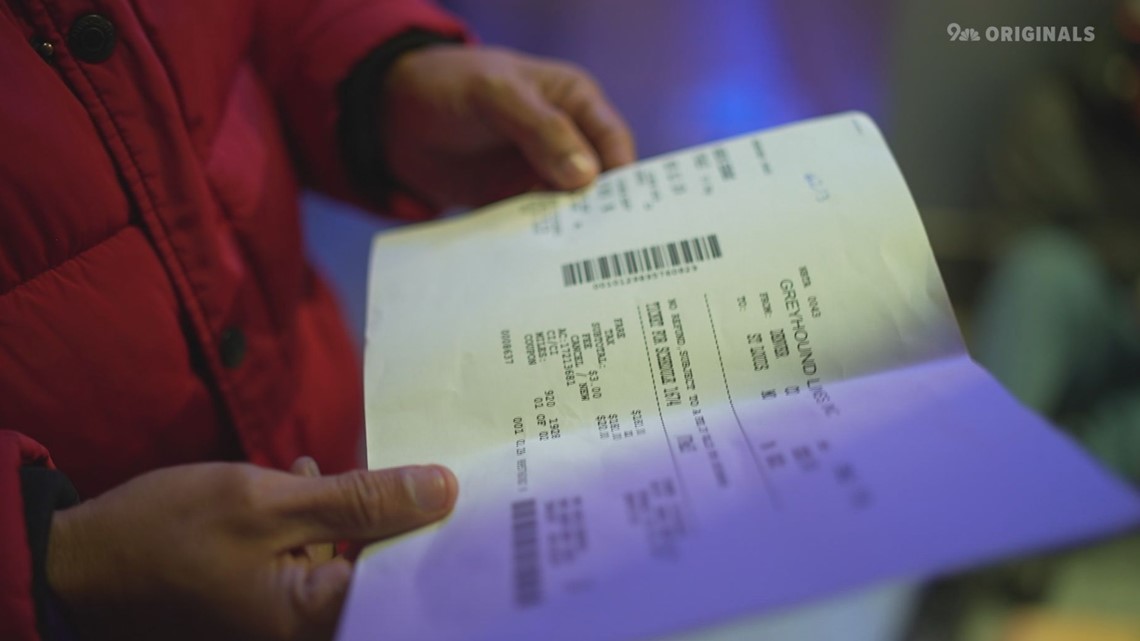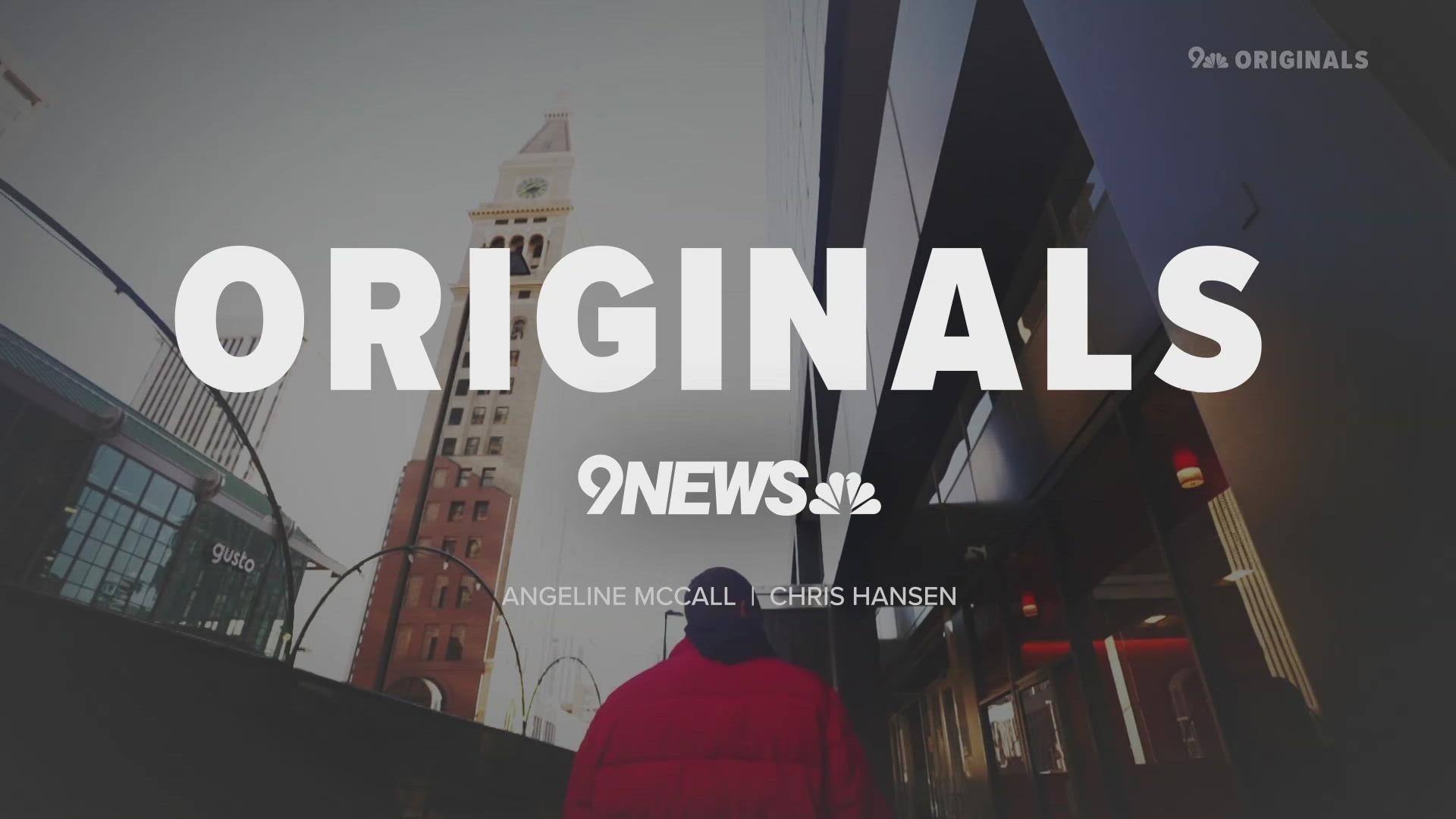DENVER, Colorado — Denver may be known as a sanctuary city – it's also one of the most accessible cities for Venezuelans who enter the United States through El Paso, Texas.
Those who arrive in El Paso can make it directly to Denver by bus or make a first stop in Albuquerque. The accessibility means that migrants who have other destinations make it to Denver, even if only for a few days before traveling through.
Roberto crossed into El Paso five days before Christmas. He spent his days there on the sidewalk outside of Sacred Heart Church, waiting each night for a place to stay in the church that opened as an overnight shelter. Like many other migrants, Roberto felt stalled in El Paso, trying to figure out how to move on without money and without the necessary paperwork.
"Look, the fear of leaving is here in El Paso. The departure issue is how difficult it is for us right now to get out of El Paso," said Roberto, when we initially interviewed him at the border.


Roberto spent a month in El Paso, before finally making it to Denver by bus. He was able to find a place to stay through a city-run shelter.
"Colorado is a really great state in the United States, a place that's welcoming," said Roberto about his first impressions of Denver. "It’s really strange to see such an established city, after so many months on the road, crossing the jungle, beaches, cities. It’s pretty comfortable for us, at least in the city."
Many of the people and families who have decided to stay in Denver have done so not necessarily because Denver was a final destination. While some always knew they would stop in Denver, many others decided when they arrived in the city to find help and resources. They could envision their life here.
Since the beginning, Roberto has been unwavering in his goal – to make it to Canada.
"Our final destination is Canada for many reasons, for many reasons. The main reason is papers. To get papers in Canada, it is much more accessible in a short time than in the United States," said Roberto.
He never reconsidered his plans, despite the feeling and sentiment of security that he said he has only felt in Denver.
"Right now, I feel free. On the journey, we still have a little bit to go, but honestly, I feel really free in a country with freedom. I wanted to feel free. In Denver, and I feel really, really free," said Roberto. "In freedom, you can do what you want. Work on your want. Live where you want."


That feeling was impossible in Venezuela for Roberto and unattainable over his journey. He felt like he was always running away from something like he always had to move on quickly. Roberto's desire to leave Denver came less out of a place of necessity and more out of a place of desire. His resources stopped him from moving on faster.
"Well, I don’t have money. The truth is that it’s a problem because if the city of Denver didn’t help us, we would be on the street in the cold without food," said Roberto.
After a 14-day stay in Denver, Roberto received a ticket voucher to New York. From Union Station, the bus would first stop in St. Louis and then in New York.


"I am worried about having money to get to the (Canadian) border," said Roberto.
As he makes progress, it's an accomplishment that comes with a different side of sadness.
"I’m happy on one hand but on the other, it’s also a little sad because every time, I am a little bit further from my home in Venezuela. My mom, my dad, my other kids – it’s difficult," said Roberto.
Even though he traveled with family on the journey, the majority are back in Venezuela.
"My kids, my father, my mother. They are what I miss the most on this journey, the heat of my home, my dog, my dog. I miss my dog. I miss my father, my mom, my child, my people, my street, my house, my country," said Roberto.
Roberto finally made it to New York and is now in Canada, hoping to get a work permit and papers.
Editorial Note: All the quotes in this piece have been translated from Spanish to English.
SUGGESTED VIDEOS: Latest from 9NEWS

